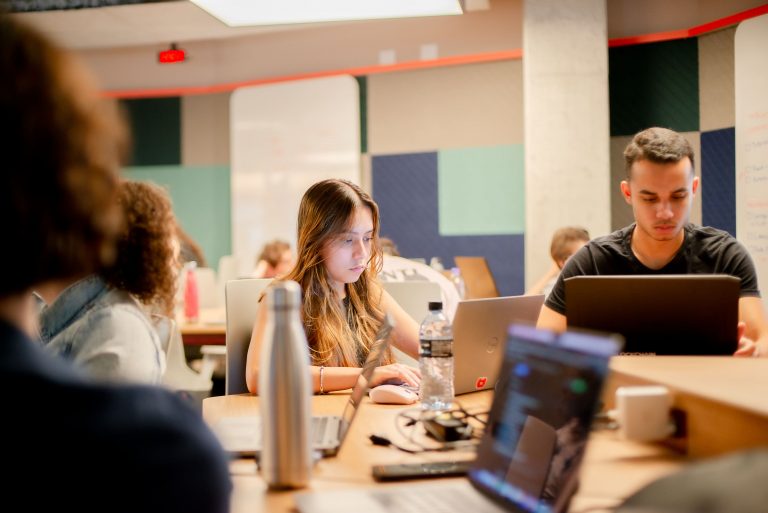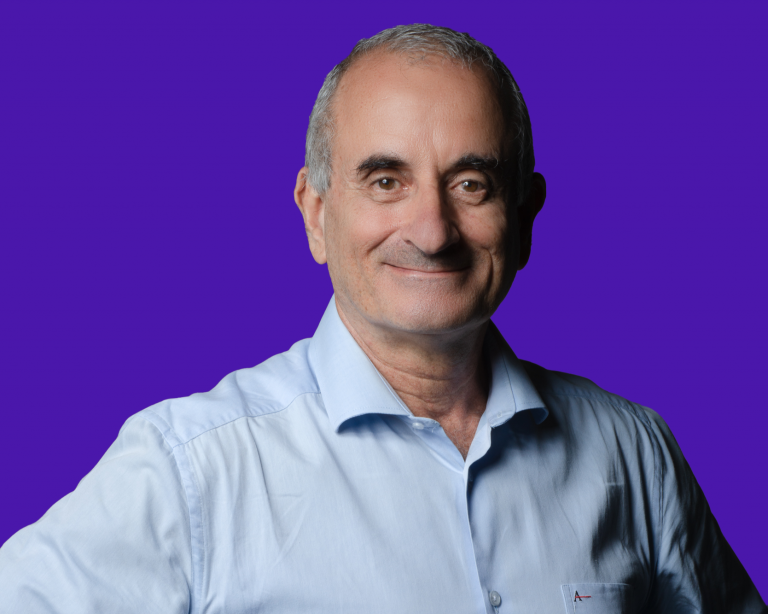Our students tell us about the experience of developing a game for the NGO Constituição nas Escolas in their first term at university.
Everyone knows that here at Inteli we believe that the academic training of a computer science professional needs to focus on solving real problems, in a mix of theory and practice. To make this happen, our project methodology challenges our students to develop a prototype of a product or a solution for a real client.
One of the market partners was the NGO Constituição nas Escolas (Constitution in Schools), which since 2014 has been promoting classes, lectures and content on our Federal Constitution to public school students. The work is supported by lawyers who volunteer to contribute to the cause.
On their first days at school, Inteli students were given the task of developing a computer game/game application using the course's curricular content. Do you want to know what this experience was like? Come with us.
How do you learn programming at Inteli?
Working collectively and collaboratively, five groups were responsible for the NGO Constitution in Schools project. And what was the beginning like?
"It's very different, but when I started to get the hang of it, I realized how effective learning through projects is. It's incredible to see how we manage to build such interesting things in a relatively short period of time," says Allan dos Santos Casado, a student on the Computer Science course.
Throughout the quarter, they worked on technical, leadership and business skills such as agile development, game development, algorithms and programming techniques; cinematics applied to games; requirements engineering; business models; user experience and oral expression(storytelling).
The first challenges
The lack of knowledge about law and politics among our population, especially public school pupils, was the great pain of the client Constituição nas Escolas (Constitution in Schools). The game's common goal was to encourage and encourage young people and adults to understand Brazil's political and legal structure in a simple and fun way.
Thainá de Deus Lima, from the Information Systems course, stresses that selecting the political content required a lot of reading on the subject. "We had to learn and summarize it as simply as possible so that it could be included in the game," she says.
The group highlights the close relationship with Felipe Neves, founder of the NGO, who was always willing to help the groups with constructive feedback, in a close and friendly relationship, but always with a lot of professionalism.
Functional game and (almost) ready for the market
It's worth remembering that most of the students had no previous experience with game development. The groups had to learn to program, while developing socio-emotional skills such as group work, self-control and communication.
"We've also made great academic progress, from the basics of business, UX and programming to the final delivery of the product," says Pablo Ruan Lana Viana, from Computer Engineering.
The students highlight the support of the mentoring teachers and instructors, who helped them develop their thinking together, guiding them along the right path when solving problems. Everything is designed to give young people real experience of the job market.
The game was presented to the client after ten weeks and the result couldn't have been more surprising. "I was impressed by the students' ability to deliver a final product that could be tested and run in such a short space of time. Another incredible thing was their ability to present the projects, understanding the market, understanding the product, presenting orally in a very cool way," says Felipe Neves.
Want to see the final result of the game? Click here.







